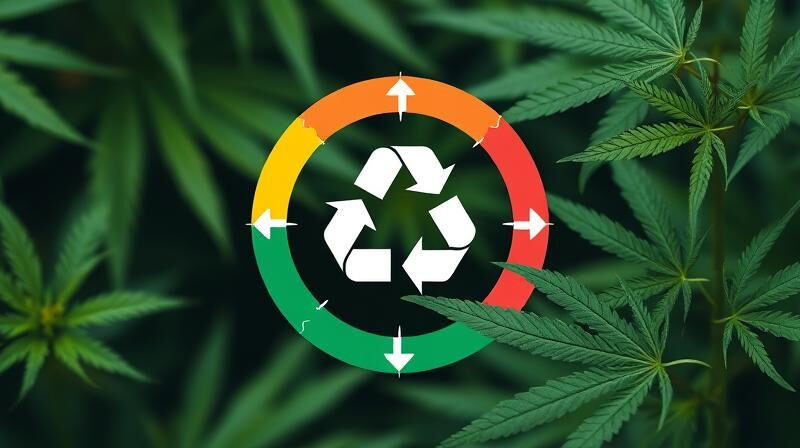The role of women in agriculture is essential, yet often underestimated and under-supported. The UN Women Albania “Agriculture and Rural Development – Mainstreaming Gender Guidance”1 emphasizes the importance of integrating gender perspectives into agricultural practices to promote equality and empower women. One promising avenue for this empowerment is the cultivation of industrial hemp, a multi-functional crop that can bring significant benefits to women in agriculture. This is particularly important in the context of Albania’s accession process to the European Union (EU), which includes strict gender equality requirements.
The Versatility of Industrial Hemp
Industrial hemp (also known as industrial cannabis) is a highly adaptable plant that can be used for a variety of purposes, including textiles, food, biofuels, livestock feed and construction materials. Its cultivation requires relatively low inputs and can thrive in a variety of climates, making it an accessible option for women farmers, especially in rural communities where resources may be limited. By engaging in hemp farming, women can diversify their sources of income, improve food security, and contribute to sustainable agricultural practices.
Economic Empowerment
Hemp farming can provide women with economic opportunities that are often lacking in traditional agricultural sectors. By cultivating hemp, women can tap into emerging markets for hemp-based products, such as hemp seeds and hemp textiles. This not only allows women to generate income, but also fosters entrepreneurship. Access to training and resources related to hemp farming can further improve women’s skills and confidence, enabling them to take on leadership roles within their communities.
Environmental Sustainability
Industrial hemp farming is known for its environmental benefits. Hemp requires fewer pesticides and herbicides than many traditional crops, making it a more sustainable choice. By promoting hemp farming, women can play an important role in advancing sustainable agricultural practices, which is essential to combat climate change and conserve natural resources. This aligns with the UN’s emphasis on sustainable development and the need for gender-responsive approaches to agriculture.
Social Empowerment and Community Building
Hemp farming can also serve as a catalyst for social empowerment among women. As women engage in hemp farming, they can form cooperatives and support networks, fostering a sense of community and collaboration. These networks can provide women with access to shared resources, knowledge, and markets, improving their bargaining power and influence in agricultural decision-making. Furthermore, as women gain recognition for their contributions to hemp farming, this could ensure that traditional gender roles are challenged and promote greater gender equality in rural areas.
Albania’s EU Membership and Gender Equality Requirements
As Albania seeks to join the European Union, it faces the imperative of aligning its policies and practices with EU standards, particularly with regard to gender equality. The EU places a strong emphasis on integrating gender perspectives as a fundamental principle in its policies, requiring member states to promote gender equality in all areas, including agriculture. This includes ensuring equal access to resources, training and decision-making processes for women.
Albania’s commitment to gender equality is reflected in the National Strategy for Gender Equality, which aims to improve women’s participation in economic activities, including agriculture. By integrating hemp cultivation into this framework, Albania can harness the potential of this crop to empower women, thereby fulfilling its obligations to the EU while promoting sustainable development.
Policies and Support Mechanisms
To fully realize the potential of hemp in empowering women in agriculture, supportive policies and frameworks are needed. The Albanian government, in cooperation with EU institutions, should prioritize gender-sensitive approaches to agricultural policies, ensuring that women have equal access to resources, training and markets related to hemp cultivation. This includes providing financial support, technical assistance and education on sustainable agricultural practices.
Nurturing Women’s Roles in Agriculture through Hemp Initiatives
Integrating hemp cultivation in agricultural practices presents a unique opportunity to empower women in rural communities, particularly in the context of Albania’s EU accession process. By aligning with the principles outlined in the UN Guidelines on “Agriculture and Rural Development – Mainstreaming Gender Guidance” and adhering to EU gender equality requirements, stakeholders can create an environment that supports women’s participation in hemp farming. Through economic, environmental and social empowerment, hemp can become a powerful tool for advancing gender equality and sustainable development in agriculture. As we move forward, it is essential to recognize and harness the potential of women in agriculture, ensuring that they are at the forefront of the hemp revolution.
Reference:
- Agriculture and Rural Development Mainstreaming Gender Guidance https://albania.unwomen.org/sites/default/files/2024-05/ard_web_final.pdf



